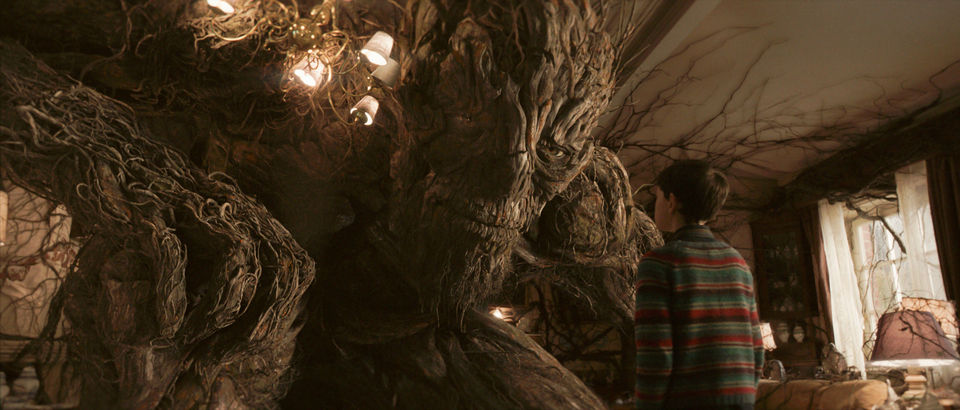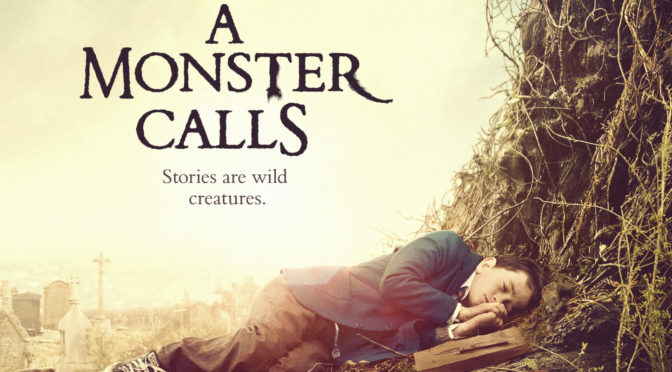Watching a loved one battle with cancer is harrowing experience, but a child supporting their parent through the disease is even worse. A Monster Calls, based on the acclaimed young adult novel, takes the perspective of a boy named Conor (Lewis MacDougall; Pan) whose single mother (Felicity Jones; The Theory of Everything) is in the middle of chemotherapy. At school Conor is bullied and at home he has to deal with his controlling grandmother who wants him to live with her. As his mother’s condition worsens, Conor is faced with possibilities he has done everything to avoid. Then suddenly, in the middle of the night, a monster (Liam Neeson; Schindler’s List) appears. The monster tells him stories of the past and asks that Conor repay the favor by telling his own story.
The monster feels surprisingly tactile. Unlike most directors, J. A. Bayona (The Orphanage) chose to use a significant amount of practical effects including animatronics to bring the monster to life. The sound design furthers this representation. Each step of the monster comes with the heavy creaking and groaning of normally static wood being contorted against its nature. The result is a ferocious beast that moves with a heft rarely found in computer generated imagery. Neeson’s voice is the perfect fit for the monster. His normally raspy tones are boosted with base that booms with ancient power. Despite the monster’s strength, size, and appearance, Neeson underscores his dialogue with a subtle kindness, like a parent nudging their child in the right direction. His voice acting and the stunning effects create the imposing presence needed to make the otherworldly monster feel natural.

Punctuating the real life events are animated sequences. The monster’s stories are realized through vivid watercolor-like images that illustrate narratives beyond the typical fairy tale. The screenplay, also written by the book’s author Patrick Ness, uses these stories to emphasize the complexity of life. As the monster says, “There is not always a good guy. Nor is there always a bad one. Most people are somewhere in between.” Ness chooses to explore the messiness of life and the inherent contradictions in the way most people behave. His parables reinforce the difficulty of Conor’s situation and hint at the truth behind his feelings.
Few films are able to capture grief without being manipulative. The sight of someone suffering is enough to produce an emotional response, but what separates great films is understanding the nuances of the pain. Bayona goes far past the obvious. As Conor watches him mom deteriorate, his worst fears are never far from his mind. MacDougall’s body language and sunken eyes show his weariness and pent up frustration. He has seen her suffer for months and has had to endure the constant pity of others without being able to do anything to help her. The decision to focus on the boy’s struggle rather than images of his mother failing health may slow the movie’s pace early on, but it makes for a much more emotionally complex and effective angle. The film is able to delve into the psyche of someone caring for a cancer patient and explore the repressed feelings that cloud their mind. Conor’s fear, his anger, and, most of all, his guilt are heartbreakingly human.

4/5 stars.
